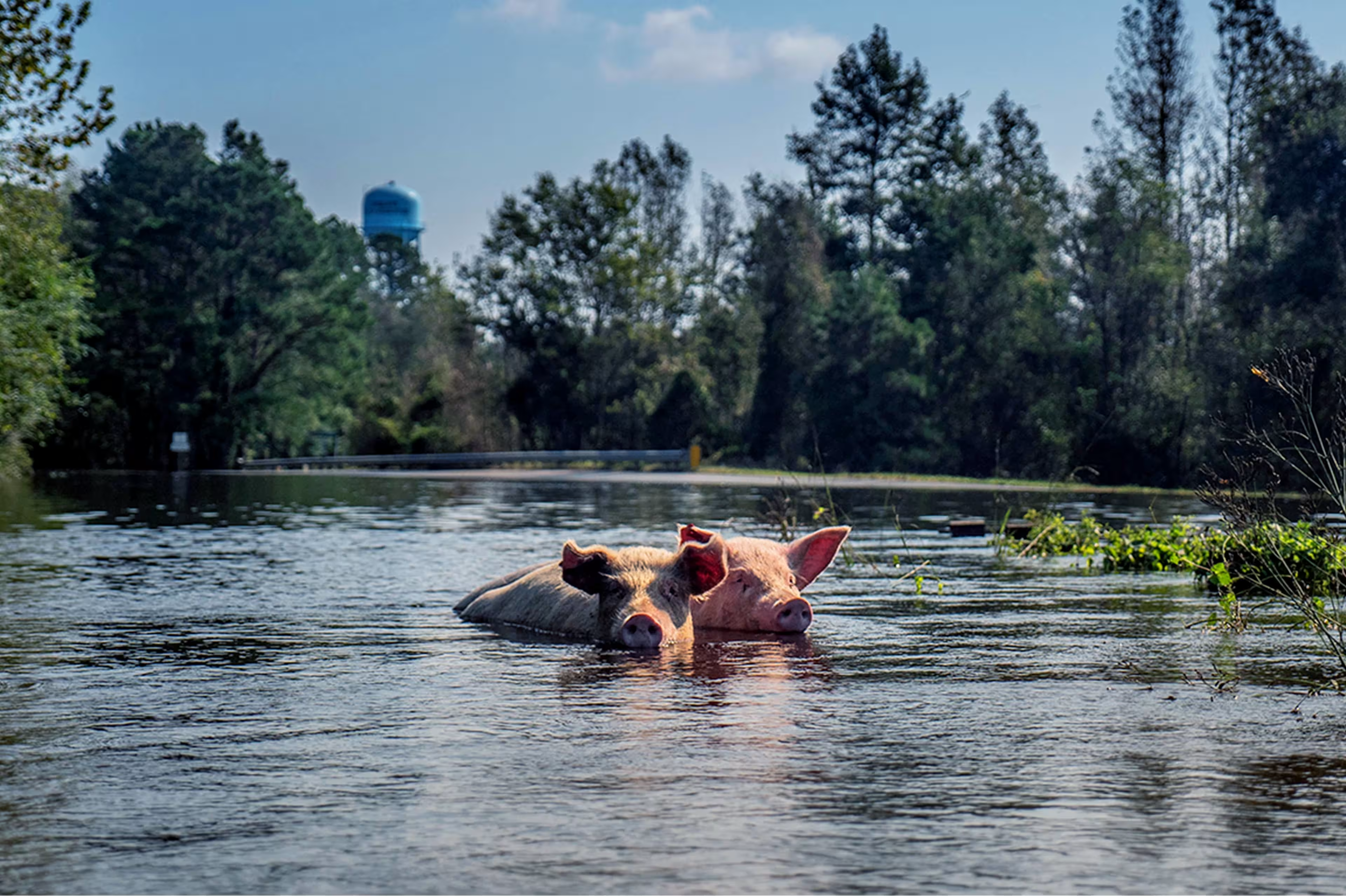




Low pay, long hours, and unsafe, unsanitary working conditions are just the tip of the iceberg when it comes to the cruel way factory farm laborers are treated.

Much has been, and will be, said about the treatment of animals on factory farms. After all, billions of animals are still suffering great abuses in factory farms every day. Animals killed for food often face grueling realities, such as ammonia burns from living in their own toxic waste, debilitating injuries from being crushed under the weight of their own genetically mutated bodies, and limited access to basic needs like space and sunlight. The Humane League exists to end this abuse.
Much has been, and will be, said about the treatment of animals on factory farms. After all, billions of animals are still suffering great abuses in factory farms every day. Animals killed for food often face grueling realities, such as ammonia burns from living in their own toxic waste, debilitating injuries from being crushed under the weight of their own genetically mutated bodies, and limited access to basic needs like space and sunlight. The Humane League exists to end this abuse.
Yet, these animals are not the only ones who suffer. The unethical treatment, and suffering, of beings on factory farms also extends to the laborers who work in these horrific environments. Suffering does not discriminate in a system built on bloodshed and quick profits, in which animals—and humans—are treated as commodities. As a Huffington Post article reported, "Workers in the meat industry make an average of $23,000 a year, work 10+ hours a day, are pushed so hard they often defecate in their pants to avoid slowing down, and suffer a repetitive motion injury rate 30 times the national average."
In an investigative report done by VegNews, Alex Bennett (a pseudonym), detailed his experience working in a slaughterhouse for three years. Bennett explained how the industry's lack of care for the workers resulted in unsanitary, and unethical, working conditions. He claimed that the pressure to never slow down the assembly line was so intense that employees would urinate on the equipment rather than being allowed to take a short break.
This cruel disregard for the dignity of those working on factory farms clearly takes a toll on the mental health of these laborers. The Huffington Post article reports, "A massive statistical analysis found that after controlling for many variables including poverty and immigration, counties with slaughterhouses have four times the national average of violent arrest, with significantly higher rates of alcoholism, domestic abuse, child abuse and suicide." The data seems clear. We can no longer afford to treat this case as an isolated incident, but rather as part of a dangerous trend.
The environment on factory farms doesn't just pose a mental and emotional threat to workers. It also poses a physical danger, sometimes even resulting in death. Last year, The Washington Post, revealed that multiple farmworkers had died by drowning in cow manure ponds on dairy farms. And this is just one example of the dangers faced by these workers. As the article goes on to say, "Agricultural workers suffer fatal on-the-job injuries at a very high rate—far higher than police officers and more than twice the rate of construction workers… Despite injury rates far exceeding other industries, the agriculture industry receives relatively light federal oversight of worker safety. Regulations established when farms were more likely to be small, family operations haven't kept up with the rapidly consolidating industry. Historically, the U.S. Department of Labor's Occupational Safety and Health Administration (OSHA) has taken a hands-off approach, conducting inspections when there is only a report of a serious accident or fatality."
While some in the animal rights community may find it difficult to feel empathy for those who take on violent jobs like this, the VegNews report points out an important consideration. "A growing percentage of (the slaughterhouse) workforce is comprised of undocumented laborers (the exact number is unknown, but 38% of slaughterhouse workers were born outside of the US), and the ever-present threat of deportation keeps many of them, for whom even a bad job is a job, silent and disempowered. Most are economic refugees—pushed north out of desperation—and they do not understand they have rights, including workers' compensation benefits to cover work-related injuries."
Amidst this suffering is one common denominator: factory farms. It's clear this industry does not care about the animals they are using, or the workers they employ. The good news? As consumers we can make a choice to say no to abuse—animal and human alike— by switching to a plant-based diet. Plant-based diets have a positive impact on personal health and well-being, the environment, and perhaps most of all, on the lives that are shown compassion through one simple decision to leave animals off our plates.
It doesn't have to be like this.
We can all make a choice to reject the cruelty and devastation caused by factory farming. You can learn more about how your individual impact can start changing the world for the better.
 Alanna Ramsier
Alanna Ramsier






